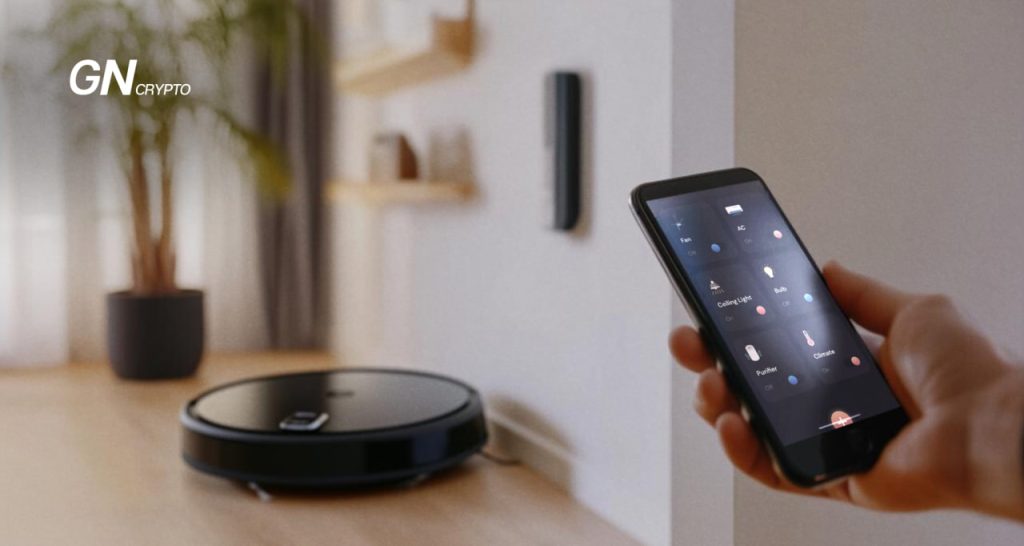Smart Home Devices in 2024: Are They Worth the Hype?

Smart home technologies can help with daily activities and make life easier. Intelligent ovens turn off automatically, robotic vacuums clean the room, switches are flipped on and off without the need for you to stand up, and coffee machines know exactly how you like your brew.
On this page
While many of these tools offer convenience at home, growing trends make us wonder whether we really need such a wide array of gadgets and if they’re actually worth the hype.
Smart Home Trends and Use Cases
According to Statista, smart speakers will remain the most popular smart home technology in 2024. This is no surprise, as some of the leading smart speakers, such as Amazon Alexa, Apple HomePod, and Google Home, provide entertainment, automation, and connect to other home devices. With these tools, you can play music or get updates about the day, be it the weather, traffic news, or your day’s tasks. To control devices like lights, air conditioners, doorbells, lockers, and TVs, you may need to set up smart switches or plugs or upgrade your traditional devices.
There can be different reasons to set up smart home devices: to have a trendy piece of tech at home, to create convenience, or to improve security and accessibility. People with limited physical capabilities can use this technology for everyday tasks, from controlling lights and blinds to preparing meals and cleaning the house without needing to move around.
Robot vacuum cleaner at home. Source: freepik.com
Keeping a home secure is another major aspect of smart home devices. Technologies like smart doorbells let you see who approaches your door, screen visitors, and show you, unwanted guests, while you’re away. If you leave the house and can’t remember whether you locked the door or turned off the stove, smart monitoring tools can help too. With connected devices, you can remotely check and manage your home, or let smart tools automatically handle tasks like locking doors or turning off appliances.
One of the rising trends is the integration of generative AI into smart speakers to allow the technology to better understand and adjust to user behavior and preferences. Due to their conversational capabilities, generative AI tools can enable smart devices to provide more personalization and hold more natural conversations with users. A recent development in this area was the partnership between OpenAI and Apple announced in June. With this move, Apple is soon integrating ChatGPT into its devices to let users access the chatbot through Siri and ask their questions among other features.
Drawbacks of Smart Home Devices
Intelligent devices offer great benefits and can improve the quality of our lives. But will too much automation take away the joy of doing simple things? The answer depends on the individual. Some people may prefer having just a few smart devices at home, while others may want to make their home a smart haven. However, there are a few things to consider before replacing traditional items with intelligent ones.
It’s important to note that not all smart home devices work well together. Some are compatible with Apple Home, others with Amazon Alexa, or with other systems. Therefore, selecting and setting up smart home devices can be complicated and time-consuming. Although hubs like Home Assistant or Samsung SmartThings connect different technologies to allow them to work together, compatibility issues can still arise. Devices may respond slowly, crash, or start randomly without the user’s command. In the future, these issues are expected to be resolved due to technological improvements and communication protocols, but it’s uncertain how long that will take.
Even when smart home devices are compatible, they may face technological problems, such as being unresponsive or having their battery drain quickly. If you have used voice assistants like Siri and Alexa, you may have noticed that they can mishear or misinterpret commands. False activations can also occur due to system errors or unintended triggers.
Privacy is another issue that may sometimes be overlooked. Intelligent tools can collect massive amounts of data about users. The more personalized experiences become, the more a device learns about a person, including their facial features, voice, daily routine, location, and more.
Despite the information provided in privacy policies, it’s unclear how collected data is actually used. This underscores the importance of researching smart home devices before choosing which ones to use.
What Does the Future Hold?
The hype around smart home devices is not just a temporary trend as the technology is growing to be a large part of the future. According to a study by Deloitte, two-thirds of smart home device owners consider the tools essential for their daily lives, mainly prioritizing home security over comfort. While the adoption of smart home devices is growing, they present data privacy and integration limitations. These issues may be solved through regulatory standards, technological upgrades, and other solutions.
In the future, we may be able to have the option to live in completely automated smart homes that manage themselves. However, before rushing to buy smart tech for your home, it’s best to consider how this will benefit you and your everyday life. Otherwise, you may end up with a cluster of new devices unable to make use of.
The content on The Coinomist is for informational purposes only and should not be interpreted as financial advice. While we strive to provide accurate and up-to-date information, we do not guarantee the accuracy, completeness, or reliability of any content. Neither we accept liability for any errors or omissions in the information provided or for any financial losses incurred as a result of relying on this information. Actions based on this content are at your own risk. Always do your own research and consult a professional. See our Terms, Privacy Policy, and Disclaimers for more details.



























